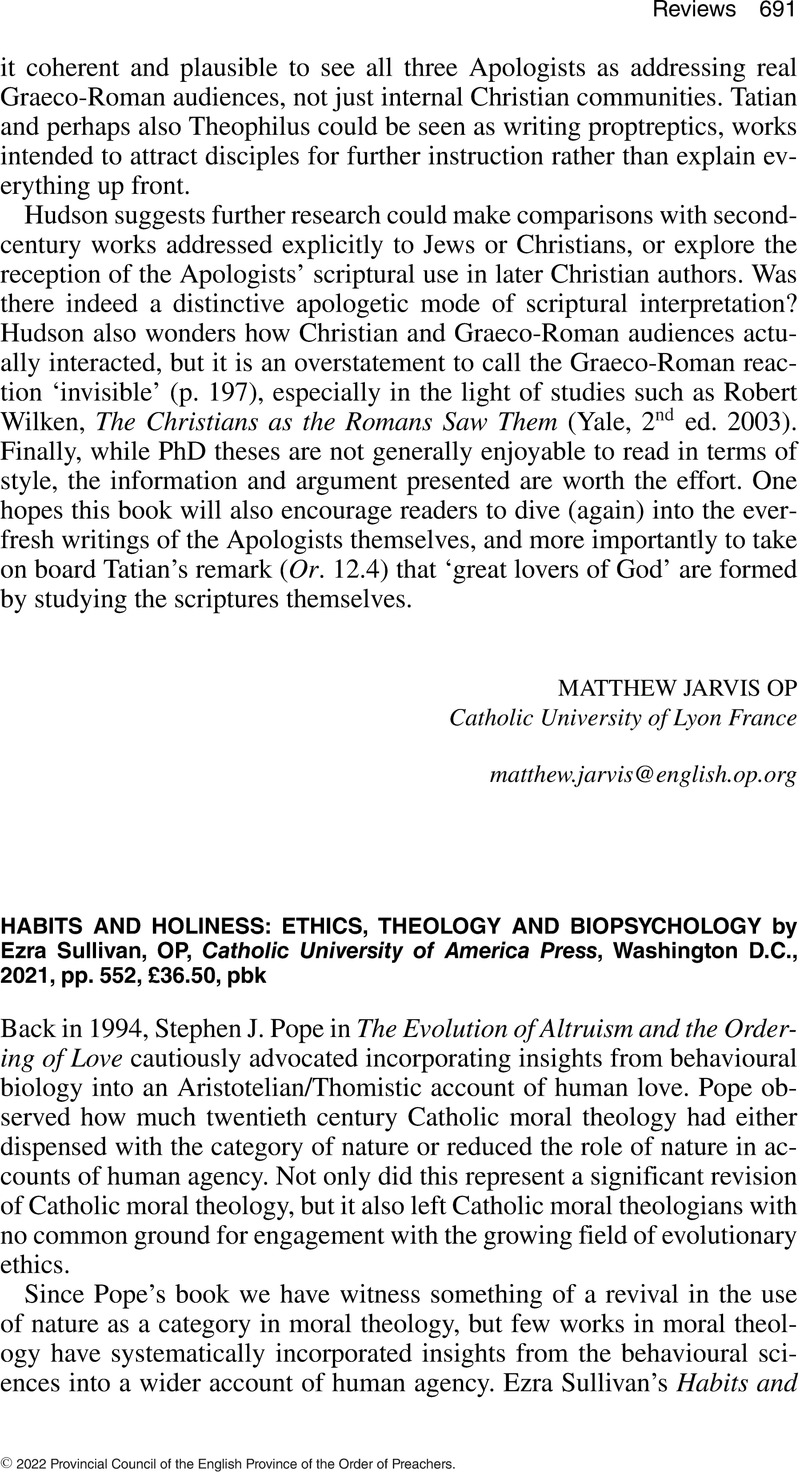No CrossRef data available.
Article contents
Habits and Holiness: Ethics, Theology and Biopsychology by Ezra SullivanOP, Catholic University of America Press, Washington D.C., 2021, pp. 552, £36.50, pbk
Review products
Habits and Holiness: Ethics, Theology and Biopsychology by Ezra Sullivan OP, Catholic University of America Press, Washington D.C., 2021, pp. 552, £36.50, pbk
Published online by Cambridge University Press: 01 January 2024
Abstract
An abstract is not available for this content so a preview has been provided. Please use the Get access link above for information on how to access this content.

- Type
- Review
- Information
- Copyright
- Copyright © 2022 Provincial Council of the English Province of the Order of Preachers




